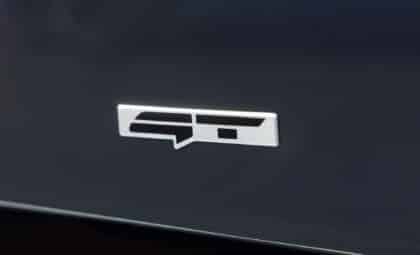This recall affects a wide range of owners, including those who may never have used their SUV for towing. While the vehicles are rated for up to 5,000 pounds, the malfunction could pose a safety risk for those who rely on functional trailer lights when hauling cargo. As reported by Autoblog, the issue is expected to affect only around 1% of the 213,121 SUVs, but the impact could be more extensive due to its broader implications on vehicle electronics.
The cause of the recall has been identified as poor soldering on the circuit boards inside the BCM. This small manufacturing flaw has created a ripple effect that could go well beyond just trailer lighting, leading to a number of frustrating and potentially hazardous glitches.
Bcm Defect Affects Trailer Lighting and Other Vehicle Functions
At the center of this recall is a faulty Body Control Module, a key electronic component responsible for managing various systems in the SUV. A manufacturing error involving improper soldering on the module’s circuit board has led to several malfunctions. While the main concern centers around trailer lights—essential for towing visibility and safety—other features are also impacted.
As outlined in the source, affected vehicles may experience power window and mirror failures, HVAC issues such as blowing only warm air, USB ports that won’t charge devices, glove box lights that stop working, and horns that fail to sound when the alarm is activated. Drivers might also notice a trailer-related error message displayed on the dashboard.
Though these symptoms may seem minor in isolation, when combined, they can significantly affect both comfort and safety. In a towing situation, missing trailer lights could result in visibility issues on the road, increasing the risk of accidents.
Mileage May Determine Risk, but Recall Still Applies
Interestingly, Ford’s documentation points to a correlation between vehicle mileage and the likelihood of experiencing the issue. SUVs that have been driven more than 6,000 miles might not be at risk, implying the problem tends to manifest early in the vehicle’s life. Nevertheless, the recall remains in effect for all impacted models.
This mileage-based insight doesn’t remove any vehicles from the recall list. All owners are advised to schedule an inspection, regardless of how many miles are on the odometer, as the malfunction might not present itself immediately.
The National Highway Traffic Safety Administration (NHTSA), in conjunction with Ford, has confirmed that repairs will involve replacing the faulty Body Control Module. Customer notifications are scheduled to begin on October 13, with the replacement campaign slated between March 31 and April 3, 2026.
Long Wait Ahead for Repairs and Owner Notifications
Although the recall has already been made public, owners won’t receive immediate service. Ford plans to start sending notifications this fall, but repairs are delayed until spring 2026, leaving drivers in a potentially uncertain situation for months.
This delay could be a source of frustration, especially for those already experiencing erratic behavior from their vehicles. Power features, heating and cooling systems, and basic functions like USB charging or alarm sounds may continue to fail intermittently.









